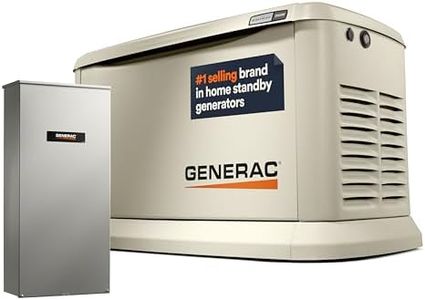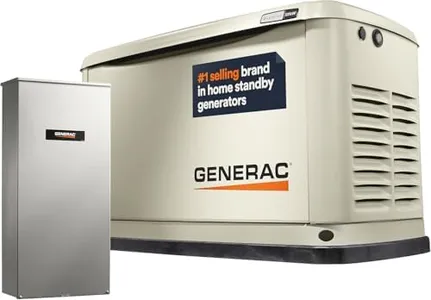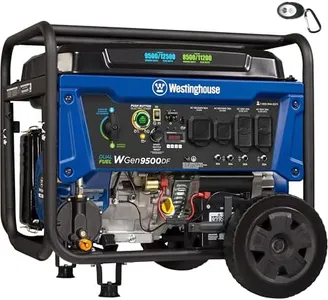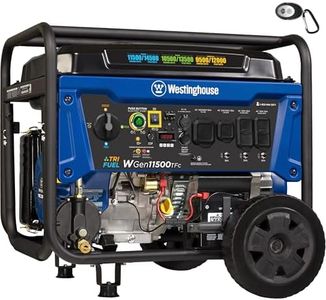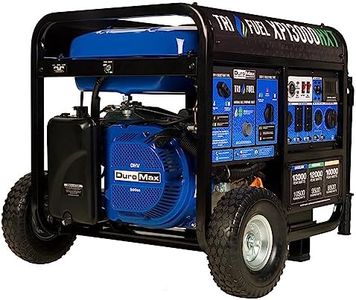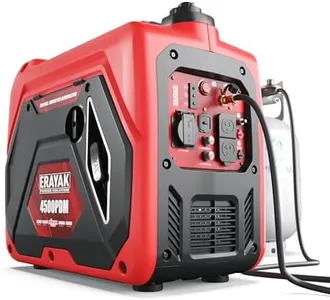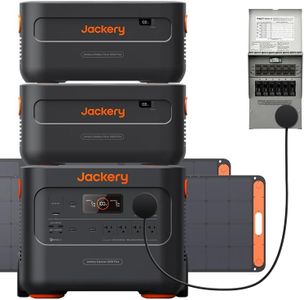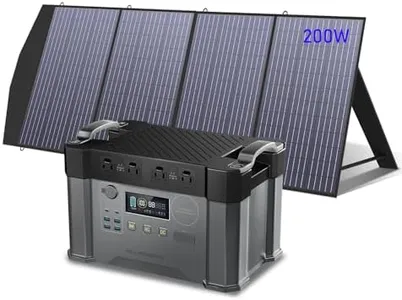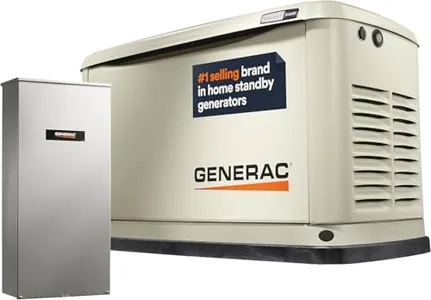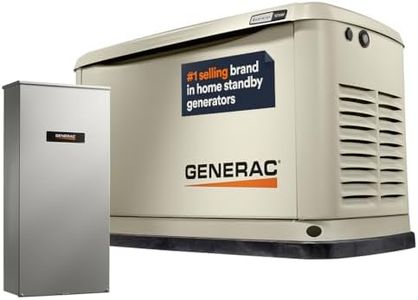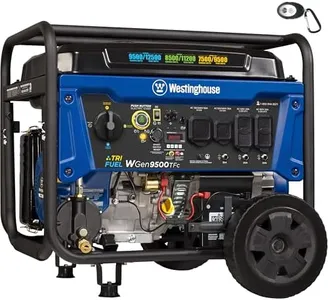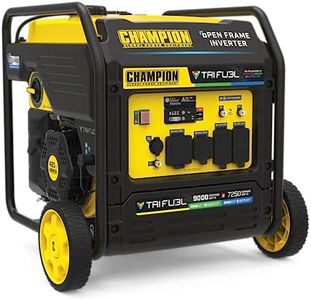10 Best Natural Gas Generators 2025 in the United States
Recommended lists
Our technology thoroughly searches through the online shopping world, reviewing hundreds of sites. We then process and analyze this information, updating in real-time to bring you the latest top-rated products. This way, you always get the best and most current options available.

Our Top Picks
Winner
Generac Guardian 26kW Home Standby Generator with 200 Amp Transfer Switch, Durable All Aluminum, WiFi Enabled with G-Force Engine, Easy to Use, Whole House Power Backup, Smart Outage Solution - Bisque
Most important from
439 reviews
The Generac Guardian 26kW Home Standby Generator is designed to provide reliable whole-house power backup, delivering a strong 26,000 watts of clean and stable electricity suitable for most residential needs. It runs on natural gas or propane, which are cleaner fuels compared to gasoline, and the G-Force engine is built for durability and lower maintenance. The generator features an electronic ignition for easy automatic starting during outages and includes a 200 Amp transfer switch for seamless power transfer to your home.
In terms of noise, it is described as “super quiet” with a fully enclosed aluminum casing, helping it blend into outdoor environments without being too loud. At 518 pounds and fairly large dimensions, it is not portable and intended for fixed outdoor installation. The generator is designed for standby use during power outages rather than continuous operation.
Maintenance is simplified by the G-Force engine’s heavy-use capability and lower upkeep needs. WiFi connectivity allows remote monitoring of performance and status alerts. Installation requires a professional electrician due to complexity and safety considerations. With a 5-year warranty, this generator is a reliable, quiet, and relatively low-maintenance option for homeowners seeking automatic and seamless whole-house power protection, though it is less suitable for those needing portability or extended continuous run times.
Most important from
439 reviews
Generac Guardian 22kW Home Standby Generator with 200 Amp Transfer Switch, Durable All Aluminum, WiFi Enabled with G-Force Engine, Easy to Use, Whole House Power Backup, Smart Outage Solution - Bisque
Most important from
439 reviews
The Generac 7043 is a powerful standby generator designed for residential use, delivering a robust 22kW of clean, reliable power with minimal harmonic distortion. This makes it suitable for homeowners who want to ensure seamless electricity supply during outages, covering their entire house with the included 200-amp transfer switch. The generator's Wi-Fi connectivity allows for remote monitoring, letting users track performance and receive maintenance alerts straight from their smartphones—a fantastic feature for peace of mind when away from home.
In terms of noise level, it’s important to note that most standby generators can produce noticeable sound when operating. Portability might be a concern as this generator weighs 466 pounds, which indicates it’s intended as a stationary unit rather than one that can be easily moved.
The engine is built for performance, ensuring less frequent maintenance needs due to its durable design. The included 5-year warranty adds a layer of confidence for users regarding the longevity of the product. Installation will require a certified electrician, which could be an added cost for some homeowners. The price point of the Generac 7043 may be higher compared to smaller, less powerful generators, making it more of an investment. Additionally, potential buyers should consider their specific power needs, as those living in smaller homes or those who do not require whole-house coverage may find it excessive.
Most important from
439 reviews
Westinghouse 12500 Watt Dual Fuel Home Backup Portable Generator, Remote Electric Start, Transfer Switch Ready, Gas and Propane Powered
Most important from
24827 reviews
The Westinghouse 12500 Watt Dual Fuel Home Backup Portable Generator is a powerful and versatile option for home backup needs. With a running wattage of 9500 watts on gasoline and 8500 watts on propane, it provides significant power for various household applications. The peak wattage reaches up to 12500 watts on gasoline and 11200 watts on propane, making it suitable for handling surges in power demand. Its dual fuel capability offers flexibility, allowing users to choose between gasoline and propane based on availability and preference.
The remote electric start with an included key fob adds convenience, while the electric and recoil start options ensure reliable operation in different situations. The generator features a substantial 6.6-gallon fuel tank with a fuel gauge, supporting up to 12 hours of run time, which is beneficial during extended power outages. Additionally, the generator includes multiple outlets with rubber covers for safety, including household receptacles and transfer switch ready outlets.
The Westinghouse generator is quite heavy, weighing 210 pounds, which may impact its portability despite the presence of wheels. However, its sturdy build and included components such as a battery charger, oil, and a tool kit, make it a plug-and-play solution with minimal assembly required. Maintenance is simplified with features like automatic low oil shutdown and a digital hour meter. The generator is EPA compliant and backed by a 3-year limited warranty, ensuring peace of mind for users. This generator is well-suited for residential use, particularly for those who need a reliable, high-output power source during emergencies.
